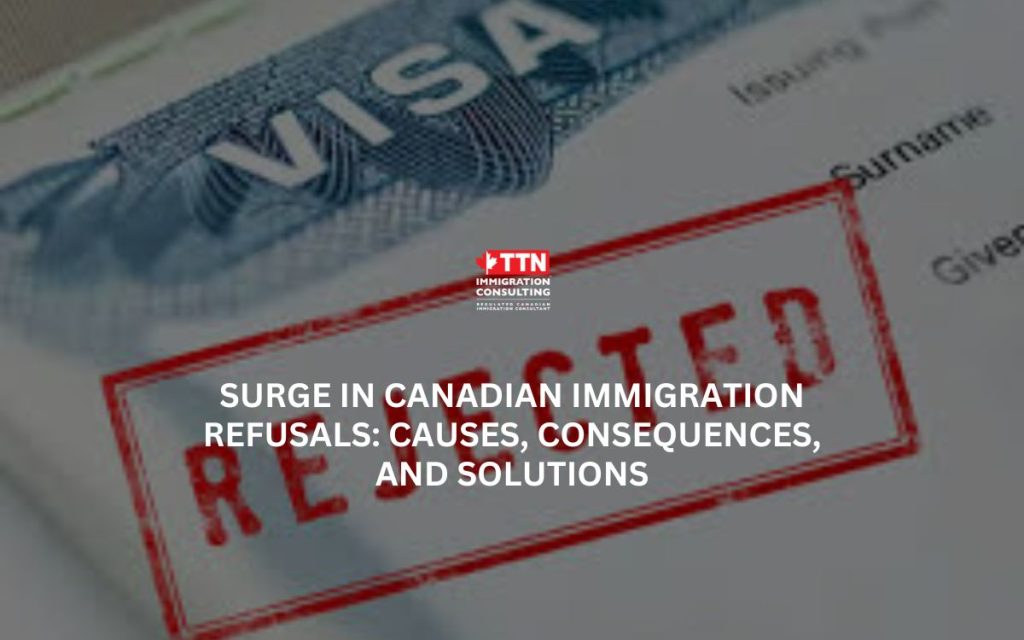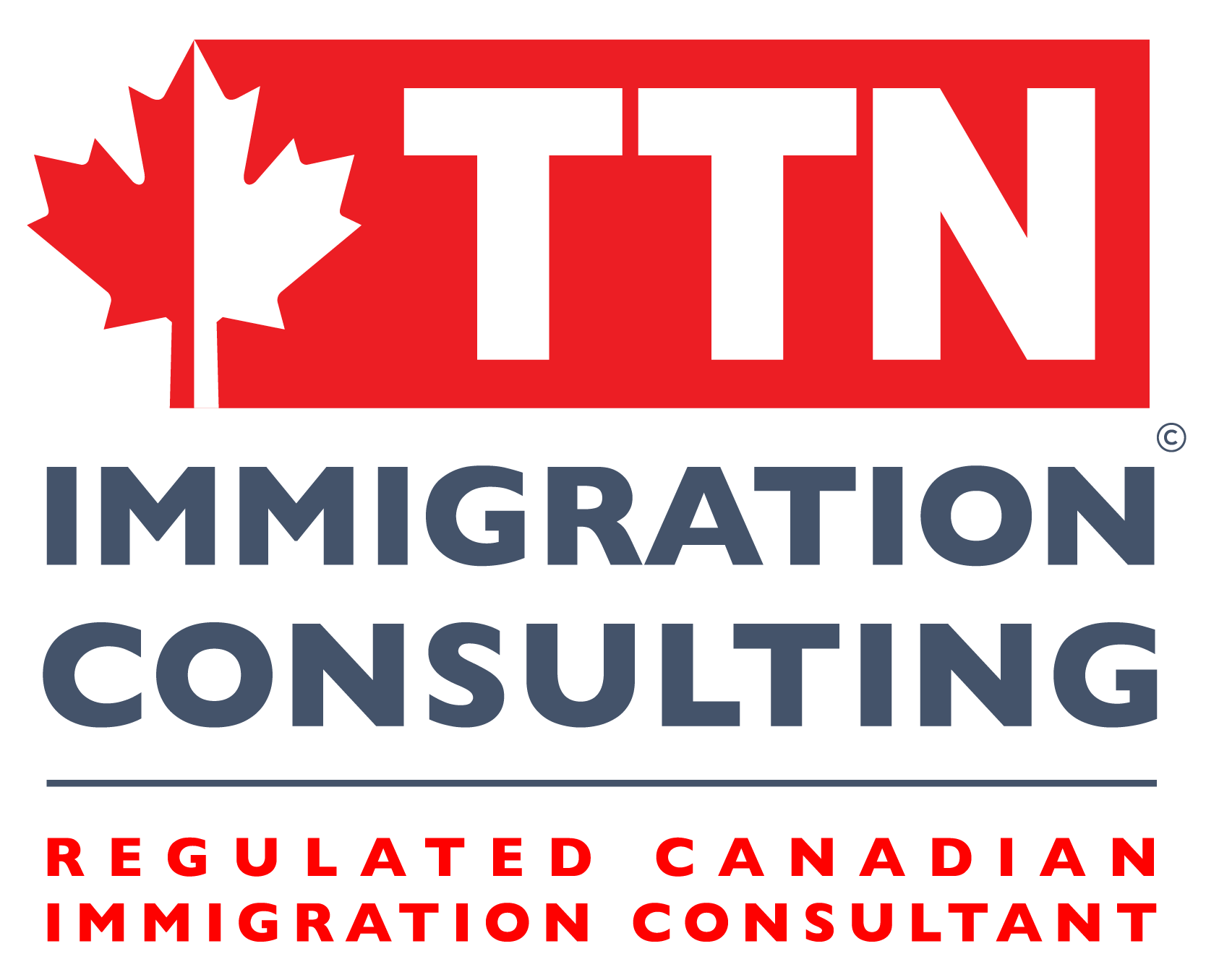Surge in Canadian Immigration Refusals: Cause, Consequences and Solutions
Tình trạng từ chối visa và hồ sơ immigrate to Canada đang gia tăng
Canada has long been known as an ideal destination with top-notch education, open job opportunities and a multicultural society. However, in recent times, many types of applications are facing increasing rates of Canadian visa refusal. This includes:
- Visitor Visa (visitor visa)
- Giấy phép du học (study permit)
- Giấy phép làm việc sau tốt nghiệp (PGWP)
- Giấy phép lao động mở cho vợ/chồng (SOWP)
- Hồ sơ xin permanent residence (PR)
Recent statistics show that the Canadian Immigration Department (IRCC) has increased the refusal rate for countries considered “high risk” by 61%. More worryingly, many of the refusals are due to errors on the part of IRCC, which has a serious impact on applicants both mentally and financially.

Why is the number of rejected immigration applications increasing?
1. IRCC system overloaded
IRCC thường xử lý gần 2 triệu hồ sơ tại mọi thời điểm. Khối lượng công việc lớn khiến nhiều nhân viên xét duyệt hồ sơ bị quá tải, dễ dẫn đến:
- Missing important documents
- Incorrect evaluation of valid conditions
- Misrepresentation (e.g. having valid financial evidence but still being assessed as insufficient)
2. Sudden policy changes
Many new regulations tighten the conditions for submitting documents, such as:
- From January 21, 2025, the open work permit for spouses (SOWP) will only apply to sponsors working in TEER 0, 1, and some TEER 2/3 occupations.
- Study permits are subject to closer scrutiny regarding the purpose of study and financial capacity.
The evaluation of old applications under new regulations causes many applicants to be rejected without having time to prepare.
3. Inconsistent decisions
Because IRCC gives officers broad discretion, some similar applications have completely different outcomes. This creates a sense of unfairness and unpredictability among the applicant community.
4. Procedural and communication errors
Many Canadian visa refusal letters do not give specific reasons, leaving applicants confused about where they went wrong. Some common mistakes:
- Send letters requesting additional documents that are not required
- Sent the letter to the representative instead of the applicant.
- Missing language certificates, transcripts, confirmation letters
5. The number of applications increased dramatically
As more and more people apply to study, work and settle in Canada, fast-track processing can lead to hasty, error-prone assessments that negatively impact applicants even if they comply with the rules.
Consequences of being denied Canadian immigration application
1. Mental impact
Being rejected can cause anxiety, confusion and psychological impact on the applicant. For example, if a PGWP is rejected, an international student may lose the opportunity to work in Canada – an important stepping stone to applying for PR.
2. Financial burden
- Must resubmit application: new fee, notarization, translation
- If you file a judicial review in a Canadian federal court, you will have to pay attorney fees (which can run into thousands of dollars).
3. Lost opportunity
Being denied a study permit or SOWP can prevent family members from reuniting, affecting study or family plans.
4. Difficulty for subsequent submissions
Multiple rejections will reduce the credibility of the profile, lose CRS points due to age or expired documents, affecting the chance of getting PR.
Common reasons for application rejection
1. Visa du lịch (Visitor visa)
- Failure to Prove Intent to Leave
- Finances are not clear enough
- Lack of transparency about travel history or identity
2. Giấy phép du học (Study permit)
- Choosing the wrong study program
- Incomplete and illogical financial documents
- Has a history of previous violations of academic conditions
3. Giấy phép làm việc sau tốt nghiệp (PGWP)
- Studying the wrong program is not eligible.
- PGWP application deadline expired (more than 180 days from graduation date)
- Working illegally while studying
4. Giấy phép lao động mở cho vợ/chồng (SOWP)
- Unable to prove spousal or common-law relationship
- Sponsor not working in eligible industry after January 2025
- The officer reviewing the application ignored important documents.
5. Thường trú nhân (Permanent Residency – PR)
- Missing documents: degrees, work experience, language test
- False information (even unintentional) may be considered misrepresentation → 5-year ban on application
- Not Getting Enough CRS Points in the Express Entry System
Canada Immigration Application Rejected: What to Do?
1. Reapply
Suitable for cases where documents are missing or additional information is needed.
Note::
- You should ask for GCMS notes to know the specific reason for rejection.
- Re-prepare all documents, clearly explain previous weaknesses
- Can seek help from immigration expert (RCIC) to increase the success rate
2. Request for reconsideration
- Submit via IRCC webform, outlining the error the officer made (e.g. omitting a language certificate)
- Free, but low success rate
- Should be submitted within 30 days of rejection.
3. Apply for Judicial Review
- For cases of unjust rejection, due to procedural errors or unreasonable assessments
- Must be filed in the Federal Court of Canada
- High cost, need specialized lawyer
- Do not review the records, only consider whether the decision-making process was flawed.
Call on IRCC to improve process
Refusal of Canadian visas due to IRCC errors not only harms applicants, but also damages the reputation of the system. It is necessary to:
- Clear rejection letter with specific reasons
- Strengthen training of file review officers
- There is a transparent and effective mechanism for reviewing records.
- Easily access GCMS notes to understand how your application is assessed
Conclusion: Being rejected does not mean the end of the Canadian dream
Being denied a Canadian immigration or visa is a big blow, but there are still many other ways to continue the journey. The important thing is to understand the reasons, determine the right direction and act at the right time.
If you are in a similar situation, contact an experienced immigration expert or consultant for proper guidance.

